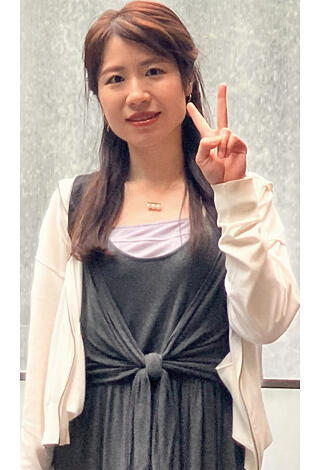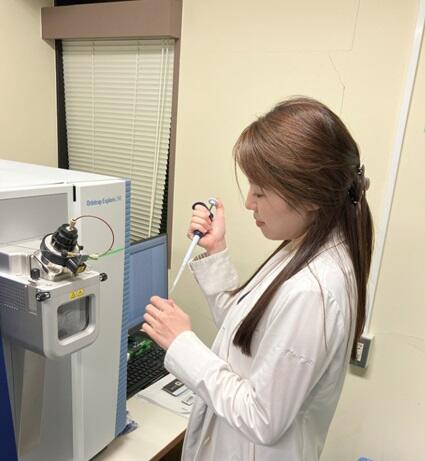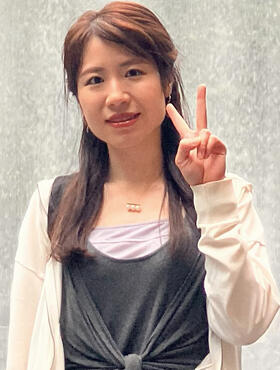
Assistant Professor of the Dept. of Modomics Medicine and Biology, part of the Division of Aging Science, Institute of Development, Aging and Cancer (IDAC) at Tohoku University
Q1. What led you to pursue medical research?
A1. I was interested in the 'eyes,' which are important communication tools, and upon the invitation of my former teachers, I began my research career.
During their internships at medical school, students generally apply to various departments. I chose the ophthalmology department because I was interested in the round shape of the 'eyes,' key tools for communication. It is said that humans perceive approximately 90% of the information from the outside world through vision. Glaucoma, the primary cause of premature blindness in Japan, is an optic nerve disease that progresses with age. Despite advances in medicine and surgical instruments, the number of people who become blind continues to increase, and it has become a major social problem in the super-aging population of Japan.
I joined the Ophthalmology Department at Kumamoto University, which has traditionally been active in glaucoma research, and my supervisors at the time, Dr. Hidenobu Tanihara and Dr. Toshihiro Inoue, recommended that I explore basic research. Afterwards, I entered graduate school at a relatively early period after joining the department and conducted research on the molecular mechanisms of glaucoma. To further deepen my research, I began attending the Molecular Physiology Laboratory led by Professor Kazuhito Tomizawa at Kumamoto University and started research on RNA modification.
A few years later, when my research had become interesting, Professor Fanyan Wei invited me to join him in establishing his new laboratory. Professor Wei was an associate professor at Kumamoto University at the time and had decided to go independent. Although I was interested in both continuing RNA-modification research and the prospect of establishing a new laboratory, I made a choice and focused on the field of basic research.

Q2. What kind of research are you doing?
A2. I am working on the clarifying the functions of RNA modification and how they link to maintaining quality of life (QOL).
Living organisms have nucleic acids—DNA and RNA, the blueprints of genetic information. Although DNA and proteins can be modified through processes such as methylation and acetylation, RNA has been found to undergo more extensive chemical modifications. I am investigating the kind of effects that appear in vivo after RNA modification.
During my work in the JST ERATO Suzuki RNA Modification Project, I discovered that N6-methyladenosine (m6A), a metabolic product of RNA modification, triggers a strong receptor signaling response and causes inflammation. The clarification of the roles and functions of modified nucleosides, including m6A, in the immune system may prove useful in the future for diagnosis and treatment of various diseases. During my research work, I was inspired by many researchers in Japan and abroad, including Professor Tsutomu Suzuki (Research Director of ERATO).
Eye function weakens with age, and the stage between the 'healthy' and 'in-need-of-care' phases is termed 'eye frailty.' Since eye frailty is reversible, early detection and intervention at this stage will help in the preservation of QOL and quality of vision (QOV), before severe visual impairment occurs.

Q3. What message would you like to give to potential researchers?
A3. Please work every day with 'fondness,' and dream of a job that will be useful to someone.
When I first became an ophthalmologist, I planned to perform a lot of surgeries, and I never imagined I would become a researcher. But now, with thoughts of how I enjoy it, I conduct research work every day. To be honest, I do not know if I am suited for research, and I am not sure if I will persist in the research field 10 years from now.
When things continue to go wrong, sometimes, a phrase that a senior colleague told me bounces around in my head: "There's a difference between what you like and what you are suited to." However, I believe that I can use my research to help others in the future by preventing and treating eye frailty, including glaucoma.
(Article: Manami Yokoi)

Profile
Akiko Ogawa
Born in Kanagawa Prefecture.
Graduated as an ophthalmologist from the Department of Medicine of the Faculty of Medicine at the University of Tokyo in 2012. Completed doctoral course in Ophthalmology of the Graduate School of Medicine at Kumamoto University in 2019. Holds a PhD in Medicine.
Has held current position since 2019. Concurrently, Visiting Lecturer of the Department of Ophthalmology at Kumamoto University. Since 2020, researcher for the ERATO 'Suzuki RNA Modification Project.'




